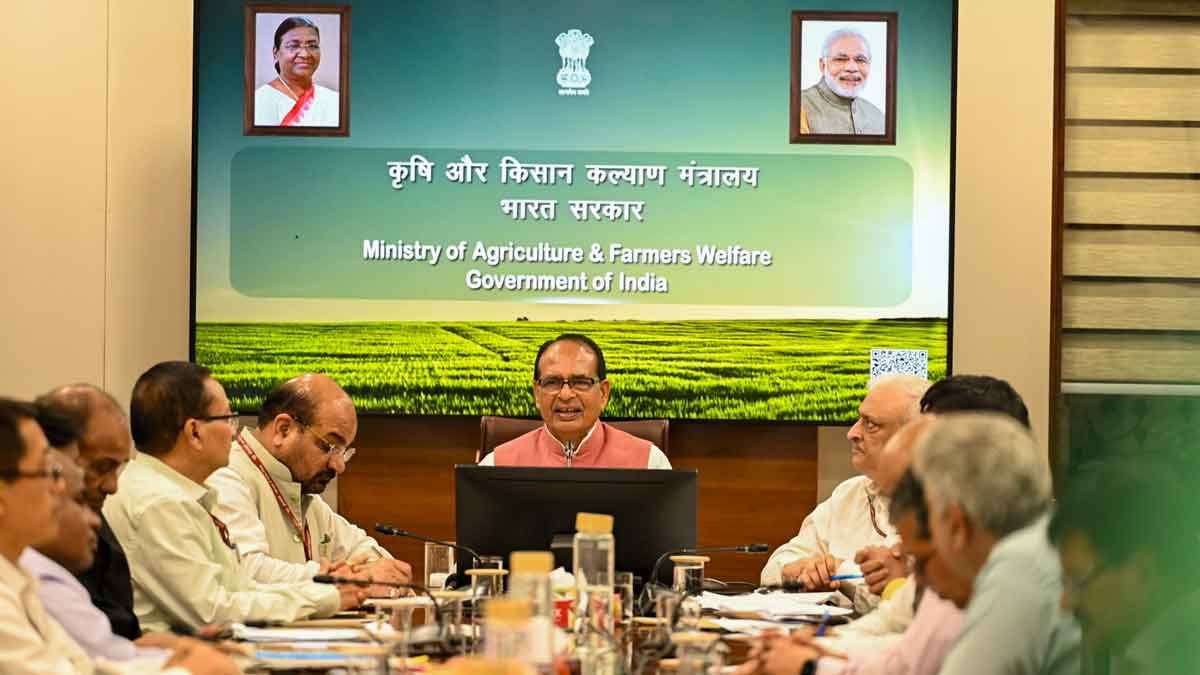Agriculture ministry rolls out campaign to empower farmers with technology
 Union Minister Shivraj Singh Chouhan during a meeting with Agriculture Ministers and senior officials of the states regarding the nationwide 'Developed Agriculture Sankalp Abhiyan' | PTI
Union Minister Shivraj Singh Chouhan during a meeting with Agriculture Ministers and senior officials of the states regarding the nationwide 'Developed Agriculture Sankalp Abhiyan' | PTI
The recent military action against Pakistan – Operation Sindoor – has highlighted the importance of maintaining food security in India in the event of an extended conflict. The Union Agriculture Ministry is launching a 15-day focused campaign across the country where agriculture scientists and experts will visit farms and interact with farmers to help them use advancements in the sector.
Union Agriculture Minister Shivraj Singh Chouhan unveiled an ambitious 15-day drive, ‘Viksit Krishi Sankalp Abhiyan’, aimed at translating cutting-edge agronomic research into practical gains for growers ahead of this year’s kharif sowing. This campaign is crucial to maintain the food security of the country even as the sector is expected to grow at the rate of 3.5 per cent during the current fiscal.
The campaign has been designed as a two-way interaction. Farmers will share their challenges, ask questions, and report field-level problems such as pest infestations, which will inform future research directions. The initiative will draw the collective strength of 731 Krishi Vigyan Kendras and ICAR scientists, ensuring that science and farming progress hand-in-hand.
With an expected direct engagement of over 1.3 crore farmers, this innovative and inclusive campaign is poised to set a new benchmark in agricultural transformation and awareness in India, Chouhan said.
Under this campaign from May 29 to June 12, 2,170 multidisciplinary teams will visit 65,000 villages across 723 districts. The ‘Viksit Krishi Sankalp Abhiyan’ marks the government’s most concerted push yet to fuse laboratory innovation with field-level practice, paving the way for more resilient, profitable and sustainable Indian agriculture.
During village visits, experts will analyse soil-health cards, local rainfall data and water availability, then recommend high-yield seed varieties, and precise sowing windows tailored to each agro-climatic zone.
ICAR Director-General Dr M. L. Jat called the initiative “one nation, one agriculture, one team”, noting that lessons gleaned in the Kharif drive will be folded into the rabi season extension later this year.
Chouhan said this strategy rests on six pillars - raising output; lowering production costs; ensuring remunerative prices; insuring against natural calamities; promoting crop diversification, and encouraging organic farming.
Higher food grain production
The minister also added that the country’s food-grain output has climbed from 3157.74 lakh tonnes in 2023-24 to 3309.18 lakh tonnes this season, while pulses and oilseeds have also risen to 230.22 and 416 lakh tonnes respectively. The achievements, Chouhan said, have “filled national granaries and positioned India to become the Food Basket of the World.”
With the India Meteorological Department forecasting an above-normal south-west monsoon — expected to reach Kerala around May 27, five days ahead of the climatological norm — the minister projected the farm sector would maintain a 3–3.5 per cent growth rate in 2025-26, comfortably outpacing the global average of 1.5–2 per cent.
India